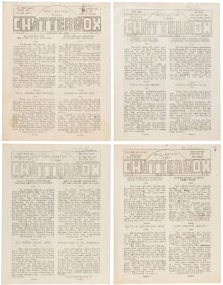 Everything That Rises, out of Georgetown University, published a think piece by Paul Elie that’s a review of (or at least reaction to) writer Orhan Pamuk’s review of Adam Begley’s biography, Updike.
Everything That Rises, out of Georgetown University, published a think piece by Paul Elie that’s a review of (or at least reaction to) writer Orhan Pamuk’s review of Adam Begley’s biography, Updike.
In “John Updike, Chronicler,” Elie notes that Pamuk “all but came out and said the thinkable-unsayable—that Updike was more vital as an essayist than as a novelist” and wonders,
“So why isn’t Updike appreciated as an essayist? Possibly because just as there is no single essential Updike novel, there is no single essential Updike essay (the one about Ted Williams’ last game comes closest). . . . That Updike was a chronicler is true of his essays, too. He chronicled his own life: his coming of age, and his aging. He chronicled the art world through several decades of museum and gallery show reviews. And he chronicled postwar fiction from Nabokov to Pamuk himself in several hundred book reviews. He even chronicled the waxing and waning (mainly the waning) of religious feeling and current trends in Christian theology. The essays, beautifully turned in themselves, were never meant to stand along (though many do). They are set at a very wide angle to their time and place—the angle formed by the pages of an opened New Yorker.”



